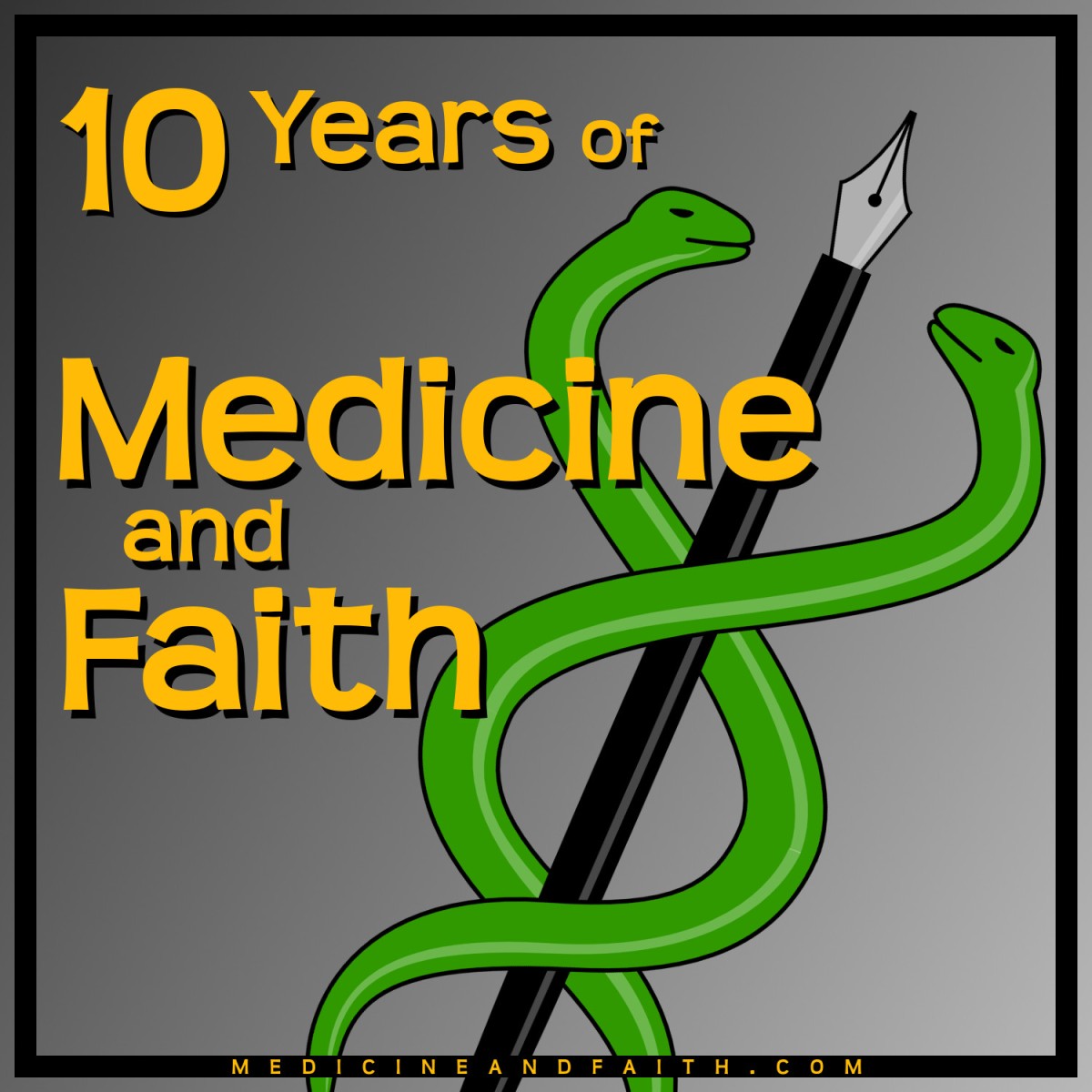A few months ago I stumbled upon the White Coat Investor, which is a financial blog started by a physician, James Dahle, MD, and written for a physician audience. I quickly judged it to be a voice I could trust because its advice is carefully argued and reasoned using logic that is familiar to my doctor brain. In fact, I found myself so hungry for information on this subject that I started binge reading.
Medical doctors are in a unique economic position, having invested large amounts of time and huge sums of money to join a profession with very good job security and earning potential. We started saving later in life, and we have more educational debt than other workers, but if we live well below our means and save more from every paycheck, then most of us should be able to retire early if we want to.
Upon comparing my own financial planning to the advice I got from this blog, I found that I am in pretty good financial shape. I save about 20% of my gross income annually, utilize the tax-efficient retirement accounts available to me, live in a place with low cost of living, and generally avoid the “bleeding cash” lifestyle that a lot of doctors gravitate to. After reading WCI’s entertaining 7-part rant about whole life insurance policies being a terrible investment choice, I decided to get a better term life policy and cancel my universal life policy. Now I am paying about half of what I used to for life insurance and I can move on to better investments, like the 529 accounts I set up for my children’s college education.
There are a few things that I need to tighten up still. One of these is estate planning, and now that my life insurance is squared away I plan to dig into that this year. WCI has a lot of resources to help me with this task, so It doesn’t seem as scary as it did before.
~~~
I once paused to pick up a penny on the ground as I was walking through a parking lot. Was it really worth the effort to do that? It was only one cent, and surely I earn enough from my regular job that I don’t have to scrounge up every last penny I come across.
But then I thought, what if I could spend an entire hour just picking up pennies off the ground? How much money would I earn in that hour? In other words, for the 2-3 seconds it took me to pick up that penny, what was my instantaneous hourly wage? If you assume that it takes 2 seconds for every penny, then:
$0.01/(2 sec) x (3600 sec)/hour = $18.00/hour
$18 per hour is not a bad wage for a working person. I never earned anything close to that until I finished residency and fellowship. Was it worth it to bend over and pick up that penny? Absolutely! How high is the opportunity cost of those two seconds? Probably zero, because there is hardly a more profitable thing I could have done. And the math only gets better with other coins:
$0.05/(2 sec) x (3600 sec)/hour = $90.00/hour
$0.10/(2 sec) x (3600 sec)/hour = $180.00/hour
$0.25/(2 sec) x (3600 sec)/hour = $450.00/hour
How many of you earn $450 per hour? I sure don’t. But I have earned that much for a few seconds at a time as an instantaneous hourly wage while picking up a quarter. And it was worth every second.
Financial planning is the same way: those hours you spend managing your money are a small part of your schedule, but they are a more profitable way to spend your time than almost any other activity you could do. Personal financial management is not a part of the standard curriculum of medical education. I had to teach myself almost everything I know about it, and I don’t consider myself an expert. But as WCI says, financial planning is the highest yield hobby. Just a few hours of work can save you or earn you hundreds of thousands of dollars over a few decades.
~~~
A friend of mine at church once gave his opinion that accumulating wealth was at odds with the teachings of the gospel. His case was pretty easy to make from the scriptures:
“19 Lay not up for yourselves treasures upon earth, where moth and rust doth corrupt, and where thieves break through and steal:
“20 But lay up for yourselves treasures in heaven, where neither moth nor rust doth corrupt, and where thieves do not break through nor steal:
“21 For where your treasure is, there will your heart be also” (Matthew 6:19-21).
“But wo unto the rich, who are rich as to the things of the world. For because they are rich they despise the poor, and they persecute the meek, and their hearts are upon their treasures; wherefore, their treasure is their god. And behold, their treasure shall perish with them also” (2 Nephi 9:30).
“Seek not after riches nor the vain things of this world; for behold, you cannot carry them with you” (Alma 39:14).
“He also that received seed among the thorns is he that heareth the word; and the care of this world, and the deceitfulness of riches, choke the word, and he becometh unfruitful” (Matthew 13:22).
“Wo unto you rich men, that will not give your substance to the poor, for your riches will canker your souls; and this shall be your lamentation in the day of visitation, and of judgment, and of indignation: The harvest is past, the summer is ended, and my soul is not saved!” (Doctrine and Covenants 56:16).
“21 Jesus said unto him, If thou wilt be perfect, go and sell that thou hast, and give to the poor, and thou shalt have treasure in heaven: and come and follow me.
“22 But when the young man heard that saying, he went away sorrowful: for he had great possessions.
“23 ¶ Then said Jesus unto his disciples, Verily I say unto you, That a rich man shall hardly enter into the kingdom of heaven.
“24 And again I say unto you, It is easier for a camel to go through the eye of a needle, than for a rich man to enter into the kingdom of God” (Matthew 19:21-24).
“6 But godliness with contentment is great gain.
“7 For we brought nothing into this world, and it is certain we can carry nothing out.
“8 And having food and raiment let us be therewith content.
“9 But they that will be rich fall into temptation and a snare, and into many foolish and hurtful lusts, which drown men in destruction and perdition.
“10 For the love of money is the root of all evil: which while some coveted after, they have erred from the faith, and pierced themselves through with many sorrows” (1 Timothy 6:6-10).
One thing is clear from all of these passages: wealth is a spiritually dangerous thing. Riches are deceitful, and those who love them, misuse them, or even just prioritize them too highly will jeopardize their souls. Don’t place your heart on earthly treasures above heavenly ones. Don’t let your riches get in the way of your salvation. Don’t jealously hoard your riches and fail to put them to charitable use.
These warning could easily be applied to anything that has the potential to eclipse our discipleship, including sports, education, fame, entertainment, etc. None of these things are intrinsically bad, but they could distract our focus from what is best, and what is essential. Like all tools, money can be used for good, for evil, or for stupid.
And money is a pretty useful tool. As with other dangerous and useful things, God has given us counsel on its proper use. For example:
“18 But before ye seek for riches, seek ye for the kingdom of God.
“19 And after ye have obtained a hope in Christ ye shall obtain riches, if ye seek them; and ye will seek them for the intent to do good—to clothe the naked, and to feed the hungry, and to liberate the captive, and administer relief to the sick and the afflicted” (Jacob 2:18-19).
Who are these naked people that we need to use our wealth to provide clothing for? Yes, it is the poor in our own communities, and yes, it is the refugee destitute of all comforts. But it is also your own children, who “have claim upon their parents for their maintenance until they are of age” (Doctrine and Covenants 83:4). Your own children are also among the hungry people who need to be fed by you, and the sick and afflicted who need you to pay for their medical care and other needs. Your wealth will enable your children to liberate themselves from ignorance so that they are not held captive by their lack of marketable knowledge and skills.
And these hungry, naked, and sick people also include you, in some future day. Saving for retirement is clothing the naked, feeding the hungry, and administering relief to the sick and afflicted, because you will be all of those things if you don’t prepare financially for the time when you can no longer work.
“54 And again, a commandment I give unto you concerning your stewardship which I have appointed unto you.
“55 Behold, all these properties are mine, or else your faith is vain, and ye are found hypocrites, and the covenants which ye have made unto me are broken;
“56 And if the properties are mine, then ye are stewards; otherwise ye are no stewards” (Doctrine and Covenants 104:54-56).
A consecrated person will understand that their wealth is a stewardship from the Lord. Our possessions are not our own, but are the property of God. He expects us to use our blessings from him to build his kingdom. The correct use of money and other properties is part of the test of mortality, and if we prove ourselves faithful in small things then we will be blessed with greater things.
~~~
The Church of Jesus Christ of Latter-day Saints is building the Lord’s kingdom all over the earth. It takes a lot of money to erect and maintain hundreds of temples and tens of thousands of church buildings, to support humanitarian relief efforts around the globe, to administer the Church Education System, the missions, and all of the other Church programs. How does the Lord’s Restored Church manage its finances?
“The Church follows the practices taught to its members of living within a budget, avoiding debt, and saving against a time of need” (Church Auditing Department Report, 2021).
Note: The Church provides many useful resources to teach self-reliance, including personal financial management.
Alan B. Sanderson, MD is a member of The Church of Jesus Christ of Latter-day Saints and is a practicing neurologist.





Well thought out, Alan. I agree that while we shouldn’t make money our god, that money is useful to provide for our children, for ourselves, and for the those in need. I’ve been blessed by my military service, second career at BYU, and my frugal wife to retire early. We’ve got income we need to take care of ourselves, help family members, and serve in the community and at church. Shannon is able to work part time in her university teaching career and still have ample time for family. We also have time to lead active, healthy lifestyles that improve our lives.
LikeLike